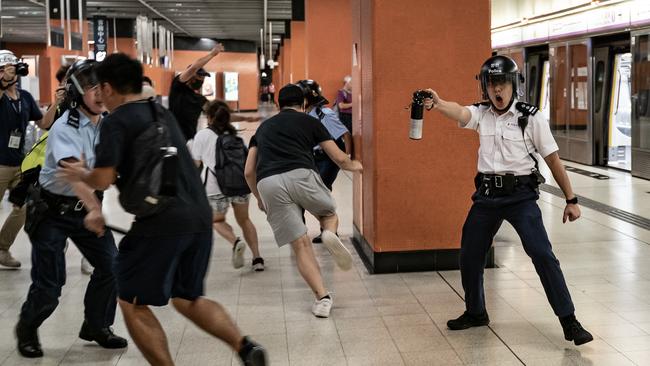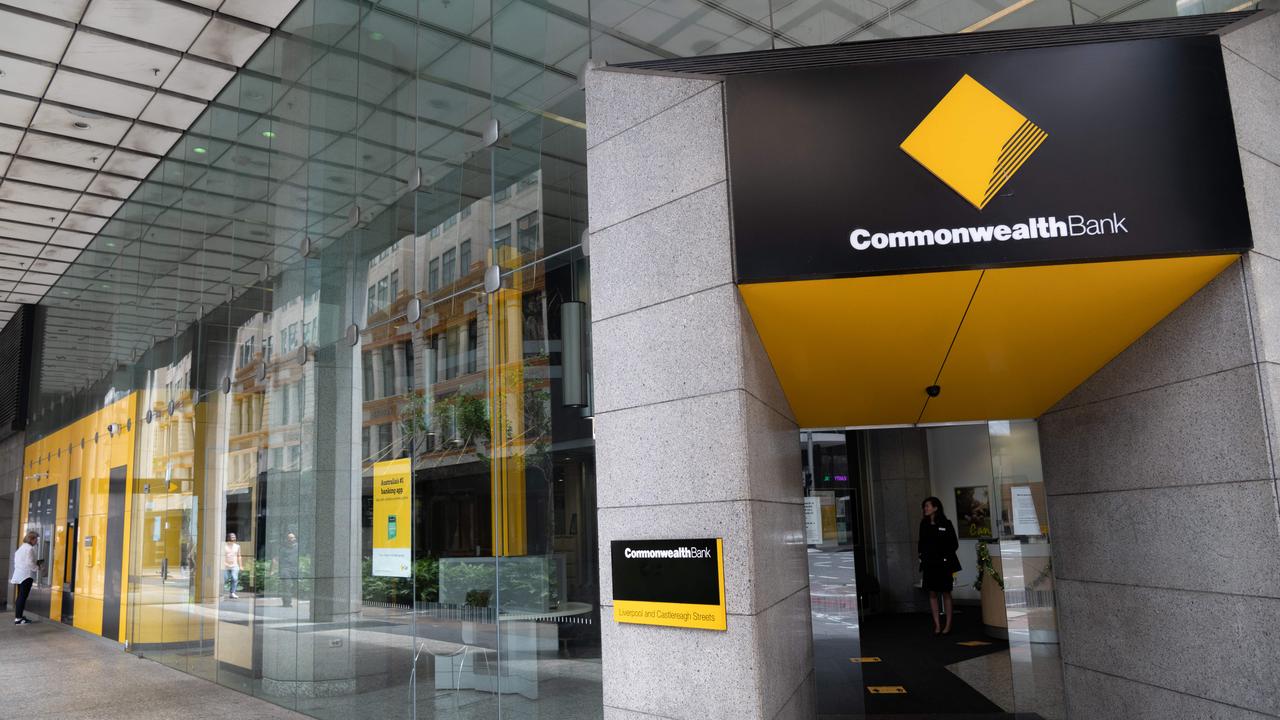
Rarely has one day been so important to our region than October 1, 2019: the 70th anniversary of the founding of the People’s Republic of China.
Any further major protests in Hong Kong will undercut the message of national unity and global power Xi Jinping is determined to convey to the people of China and to the world on 1 October.
Markets believe Hong Kong leader Carrie Lam’s withdrawal of the contentious extradition bill which sparked the unrest, as well as other gestures, will end the months of mass protests.
But removal of the extradition bill is only one of five demands that protesters have been fighting for. Others include universal suffrage in elections for the city’s chief executive officer and the legislature next year. They’re demands China would never agree to because they undermine its long-term “one China” strategy.
If the violent protests stop then calm will be restored.
If they continue - and early signs are that they will - then it’s increasingly likely that Beijing will step in directly to suppress them, given the inability of the Hong Kong police to control the situation. The word from Beijing is that President Xi is becoming impatient with the Hong Kong situation.
The 1 October celebrations will include a military parade and global attention on the protests will undercut the message Xi Jinping wants to convey.
In Beijing’s eyes, the Lam backdown is a huge concession. It was undertaken despite the fact that Beijing had driven wedge between mainland public sentiment and the Hong Kong protesters, and so is able to step into Hong Kong without domestic backlash.
In the light of the backdown, if President Xi allows the protests to continue, they could then spread to Taiwan and the mainland. The pressure on him to intervene will be immense. Almost certainly, he will act. To date China has not acted partly because the narrow streets of Hong Kong make military manoeuvres difficult and dangerous without massive force and casualties.
In addition, apart from the military complexity, China was fearful that the capital controls that would be required with a heavy intervention would end Hong Kong’s role as an integrated regional and global financial centre.
Almost certainly that would cause a huge fall in the Hong Kong and regional sharemarkets. It would limit the access of mainland companies to capital at a time when they are under increasing financial stress, and so require a series of other domestic actions. But that would just be the start.
While it’s true the emergence of Shanghai makes China less dependent on Hong Kong, the island is still very important.
As a regional financial centre, Hong Kong is part of a web of hidden counter-party risks and deals that could create regional and perhaps global “contagion” as occurred in the global financial crisis when Lehmann was allowed to collapse. China would need to intervene to stop this and it might fail.
If there was such a breakdown, Australia would be close to the front line, so we have a vital interest in what happens. Capital and people will seek save havens in places like Australia.
And it’s anyone’s guess as to how it will influence the US-China trade war.
US President Donald Trump has said in the past that he regards Beijing’s handling of the Hong Kong protests as an internal matter. But more recently he has said a crackdown would make a trade deal more difficult politically. There will be intense pressure on Trump to revoke Hong Kong’s “special status” with the US, which is separate from China.
Given relations between China and the US have worsened there will be many in the US who will seek to make capital out of the any direct China intervention in Hong Kong.
President Xi and his advisers have clearly looked at these forces and so far, decided not to intervene despite intense pressure within China to act. The Lam backdown was a huge concession in the hope that the crisis will pass. But if the protests continue as before then China’s global justification for intervening is much greater. On the other hand, the risks for China and the region are no less.
Out of control protests continuing will mean Xi has little choice but to move. Otherwise he will be seen as weak.
Let us hope that the market’s initial conclusions are right and that the Lam back down will be sufficient to reduce the protests and enable the Hong Kong police to control them. The alternative is much greater regional and perhaps global instability.



